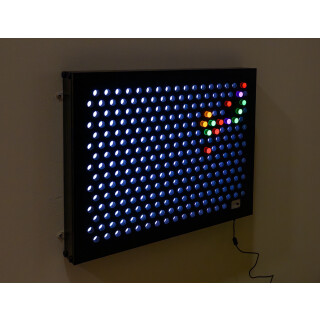Tactile Walls
Why Tactile Walls Are Great for People with Additional Needs
Tactile walls offer hands-on, sensory-rich engagement that supports exploration, regulation, and development. For those of us who seek touch or need to build tolerance to tactile input, these wall panels provide safe and rewarding sensory experiences. Whether used in classrooms, therapy spaces, or calming corners, tactile walls help support sensory integration and fine motor development in a way that’s accessible and enjoyable.
Other categories within Sensory Rooms












Provides Safe Tactile Stimulation
Touch is a vital sense for learning and calming. Tactile walls provide diverse textures that allow those of us to safely explore rough, smooth, bumpy, or soft materials at our own pace. The Gravity Wall Panel offers a range of tactile experiences that support sensory exploration without overwhelming.
Builds Fine Motor Skills and Hand Strength
Manipulating switches, wheels, or fabric textures encourages finger strength and coordination. For those of us developing motor control, tactile panels offer purposeful, motivating practice. The Croc Wall Panel wall panel provides hand-eye coordination and tactile interaction in a playful, appealing format.
Encourages Sensory Regulation
Repetitive tactile input can help regulate the nervous system. For those of us who need support calming down or staying alert, touching and fidgeting with wall panels offers a safe outlet. The Caterpillar Wall Panel can be used as part of a calming routine or sensory diet to support regulation.
Supports Choice and Independence
Tactile walls allow users to explore freely and decide what feels good or interesting. This freedom supports confidence and autonomy in those of us learning to self-direct play and interaction. The Kinetic Wall Panel invites choice-led exploration and sensory play.
Adds Dimension to Any Sensory Space
Mounted at reachable height, tactile walls transform plain surfaces into sensory learning zones. For those of us who benefit from consistent sensory input, these panels offer structure and accessibility. The Rod Wall combines texture with visual feedback to enrich sensory rooms or corridors.
